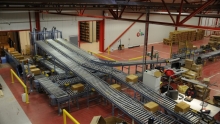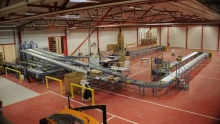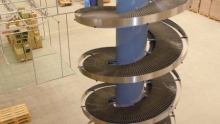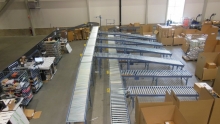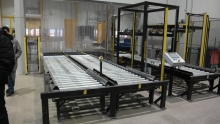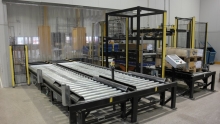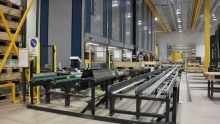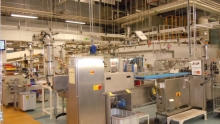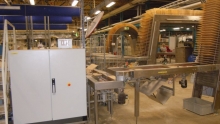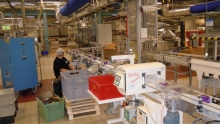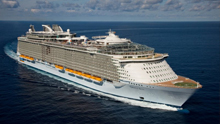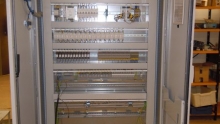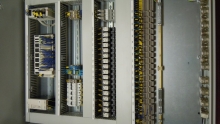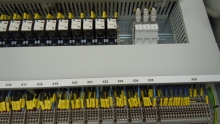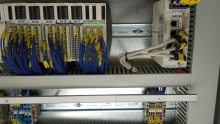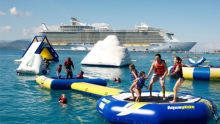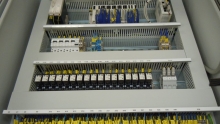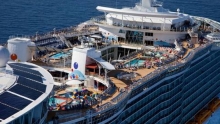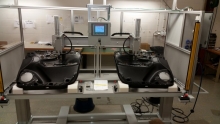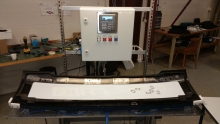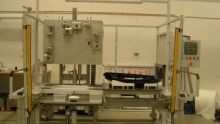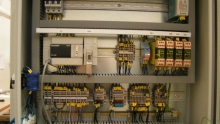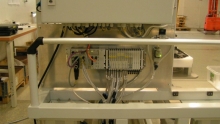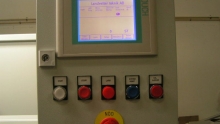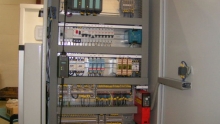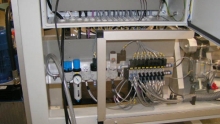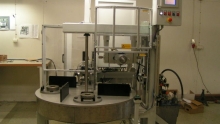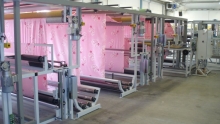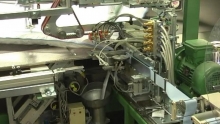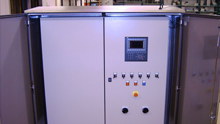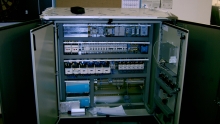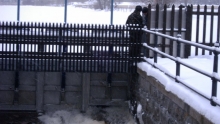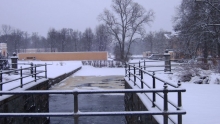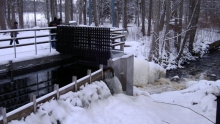AUTOMATED MATERIAL HANDLING SYSTEMS
Material handling refers to the process of moving, controlling, protecting and store materials such as freight, goods, etc. for production, disposal and distribution or even consumption.
Read more
This process is absolutely necessary, since all materials must be managed well to keep it safe and to reach the destination safely, maintained its original quality and condition. In other words, good material handling systems is extremely important, it will help you: We have complete standardized modules that we can apply to most exiting solutions providing a low cost and a secure system. Our client base are from varied business segments.
PRODUCTION PLANTS
The car industry is probably the most complex sector when it comes to dealing with customer requirements in a fierce competition that increasingly is linked to the overall optimization of production costs.
Read more
The components used to make the machines must therefore ensure advantages in optimizing production cycles, efficiency and reliability through the product life span. In this context, the supplier must increasingly take on the role of a reliable partner who can design (as a co-constructor) solutions to suit clients' different needs and provide a worldwide service - one of the most important factors.
The Swedish automotive industry is a very important part of the Swedish economy and generates about 500,000 jobs. 71,000 of these are in the supply chain, representing almost 30% of Sweden's entire manufacturing industry. It has been estimated that the Swedish automotive industry exports are worth about SEK 180 billion, equivalent to 12% of total exports. The extensive exports can be partly explained by the fact that Sweden has three prominent automotive manufacturers in Scania, Volvo Trucks and Volvo Cars.
The market for the automotive industry are extensive both in Sweden and internationally. The total sales attributable to the automotive industry represents approximately 6.9% of total GDP in the EU. The automotive industry is also the EU's largest investor in research and development. Of the total cost of research and development in the EU is around 25% attributable to the automotive industry. It should be noted that about 12.9 million people in the EU are employed in the automotive industry, which represents around 5% of the total employment.
Food industry.
There are many ideas about the industries that produce food. It is partly due to the fact that we still have some difficulty in accepting that we have let go of the production of food to others. Instead of farming, slaughtering, butchering, cooking, baking ourselves we buy more and more readymade meals prepared by large or small companies, made from foods imported from all over the world. In our modern, urban society we are not comfortable with the knowledge that food has become a commodity among others. Food is after all, something we have to feel such confidence in that we are prepared to put it in to our mouth and literally make it a part of ourselves. Therefore, the food industry is not comparable to any other industry but requires great knowledge from the operators in this branch.
The constant search for efficiency in production can only be achieved through the integration of technology solutions and components in systems designed to optimize every step in the production process. The food industry is characterized by the constant demand for reliable solutions that ensure increased productivity without compromising flexibility and quality. The accuracy and speed of production of the systems are key factors to create a major competitive advantage for the customer. Similarly, operator safety is essential, both in terms of production and maintenance.
ACG Kinna Automatic AB works in this industry as a complete provider of automation services.
Despite this there are still many difficult environmental challenges for the shipping industry. There’s a need to reduce emission footprint from carbon, sulphur and nitrogen oxides. This applies to all shipping traffic. Modern technology can dramatically lower emissions levels. ACG Kinna Automatic AB takes on assignments on behalf of this sector.
MACHINE BUILDERS
Within the industrial market, our main clients are in the OEM sector and end consumers.
Read more
HYDROPOWER PLANTS
Hydropower accounts for almost half of the production of electricity in Sweden.
Read more
Lule River in Norrbotten and Indals River in Medelpad are the two main producers of hydropower, all major Swedish hydropower plants are located in northern Sweden. The national rivers, Kalix, Torne River, Pite River, Vindel River and a number of streams are protected from further expansion by parliamentary decision. However, Pite River has an earlier established power plant called Sikforsvägen including impoundment and diversions, as does Vindel-river which merges with Umeruíver just north, upriver of Stornorrfors hydropower plant. About 85% of Sweden's waterways are developed by hydropower. In total there are around 1900 hydropower plants in Sweden and of these, approximately 3% fish ways or bypasses. In Sweden there is still no law that obligates the developer to build fauna passages. There are some 1,800 hydropower plants in Sweden. Of these, over 200 more, with the definition that they have an output of 10 megawatts or more. Swedish hydro power produces between 50 and 75 TWh per year, depending on rainfalls, in a normal year, about 65 TWh. ACG Kinna Automatic AB is active in the hydropower field acting as co-partners work delivering services and complete systems to this industry.

